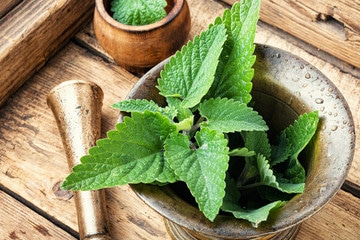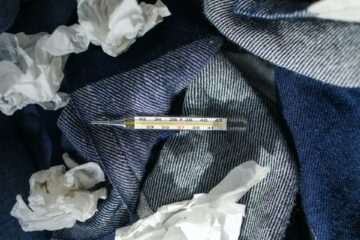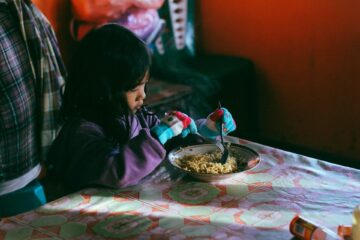Is there a cure for jedi-jedi in babies and children? Everyone wants a cure, a treatment that works, but most parents often forget that no one treatment plan cures everything.
Jedi-jedi is a Yoruba term that’s used to describe different health conditions both in children and adults. For adults, jedi-jedi is commonly associated with piles or hemorrhoids. However, the word also describes low back pain, diarrhoea, dysentery, erectile dysfunction, impotence, itchy groin, pruritus ani (itchy anus), and even constipation.
And in children, jedi-jedi is often used to describe very different health conditions. This article addresses the health-related signs and symptoms in children described as jedi-jedi and the best way to treat them.
Signs of jedi-jedi in babies and older children
In children, parents (often mothers) describe jedi-jedi manifestations in their babies or older children as:
- Watery stools
- Constipation
- Greenish stools
- Foul-smelling poop or fart, and
- Frequent stooling.
Itchy anus and diaper rash have also been described as signs of jedi-jedi in babies and children. Diaper rash results from wet diapers or not changing baby’s diapers regularly enough, while germs or when the child isn’t wiping their butt well enough might cause itchy anus.
Watery stools and frequent stooling
These two almost always go hand in hand, especially in diarrhoea. Watery stools and frequent stooling are common signs of baby diarrhoea. However, it’s not uncommon for babies to pass watery stools or to frequently pass out such.
Differentiating regular baby poops from diarrhoea can sometimes be hard to tell. Here are a few tips to help you differentiate regular frequent watery stools and diarrhoea in babies:
- A sudden increase in the frequency of your child’s poop or if there’s an increase in wateriness/looseness
- 3 or more watery stools daily in babies aged about 3 months or older
- Check for dehydration signs like weight loss, fussiness/tiredness, acting ill, a soft sunken spot in babies. Call your doctor if you suspect that your baby might be dehydrated.
- Check if the stool smells bad or contains mucus or blood for both babies and older children.
- Is your baby having a fever, acting sick, or eating poorly? Call the paediatrician
- In older children, diarrhoea presents as frequent watery stools, vomiting and stomach pain.
Note: Unlike formula-fed babies, breast-fed babies usually pass runny stools once or about 6 times a day. This continues till around the age of two months. Formula-fed babies (under two months of age) pass stools anywhere from 1 to 8 times, but they are usually firmer. Moreover, not all babies poop every day.
Causes:
Mild diarrhoea in babies is often caused by:
- Food allergy such as an allergic reaction to cow milk. If you’re using formula, ensure to stay away from cow milk based baby formula. Also, runny stools can also be as a result of dietary changes – stick to one good brand of formula.
- Solids: If you’re introducing solids, take note of foods that seem to trigger episodes of runny stools.
- Lactose intolerance: This usually starts at age 4 or 5 and it is an inability to absorb lactose, a sugar present in milk.
- Medications like antibiotics are known to cause mild diarrhoea as well.
- Mother’s diet (e.g., spicy foods, cow milk) and medications such as strong laxatives can cause diarrhoea in breastfed babies.
- And sometimes, there’s no guilty culprit to take the fall for why your baby has watery stools.
Pathologically, diarrhoea is caused by viruses, but bacteria and parasites can also cause it. This form of diarrhoea isn’t mild and will most likely require the attention of a paediatrician.
Check-in with a doctor if you’re scared, worried, or if your baby passes over 3 or 4 watery poops a day and looks sick.
What to do:
Most times, watery stools, frequent stooling, or diarrhoea will resolve on their own, so it’s usually nothing to worry about. However, if you feel that your child is in pain, check in with a doctor – that’s the ultimate cure for “jedi-jedi” in babies.
Greenish poop
Green poop is just another normal colour of poop in babies and even older children. Think about it for a second, what happens to your poop when you eat black soup or vegetable soup?
Exactly, green poop in children is mostly a result of dietary changes in the baby or the mother, as is the case for breast-fed babies.
Green poop can be due to excess bile produced, allergy or intolerance to certain foods in mum’s or child’s diet, green veggies, and rarely, it is caused by viral or bacterial infections.
Chances are, your baby has normal green poop but if it bothers you, then please call a doctor. Better safe than sorry.
Note:
Since it’s quite normal for babies to pass greenish stools, you shouldn’t give your child any herb or agbo.
If jedi-jedi to you means greenish stools, then how to treat jedi-jedi in babies should include taking a chill pill and trying to find out which food should be held accountable for that greenish mess in your baby’s diaper.
Foul smelling poop or fart
Foul-smelling poop is most commonly associated with diarrhoea, so you might want to scroll back up and read that session (if you skipped it). Now, what’s the deal with foul-smelling fart as a form of jedi-jedi:
- Babies get their gas from either swallowed air or gas released from the breakdown of foods.
- If a gas will smell or not depend on what the child is eating or what the mother has eaten and passed to the child via breast milk
- If your little one is passing foul smelling gas and it bothers you, then launch an investigation into you and their diets.
- It might be a result of certain foods like eggs, veggies, beans, meat or other high-protein foods. It can also be as a result of lactose.
- If it’s lactose, stay off dairy products and lactose-containing formula.
- However, it can also be caused by a stomach infection in which other disturbing symptoms such as vomiting or your little one feeling sick.
What to do:
Try to trace the source of your child’s smelly fart. There’s no cause to worry if it’s as a result of something they (or you) ate.
Constipation
Constipation in babies is pretty unpleasant and can be downright uncomfortable for the child. Trust me; nothing is appealing about watching your little one try to go and have nothing come out. Sometimes, they might even cry.
Here’s how can you tell if your baby has constipation:
- Hard or pellet-like poop
- Obvious difficulty when pooping – do they look like they’re straining themselves or are they crying?
- They do not poop as often as they usually do
Causes and treatment of constipation
It’s mostly as a result of diet. Formula-fed babies are more susceptible to constipation because the formula is not as easy to digest as breastmilk. It can also be caused by the mother’s diet or the introduction to solids.
The treatment plan involves a change in the baby’s or the mother’s diet. If this doesn’t work, checking in with a paediatrician should be the next move.
Can flagyl or scent leaf be used to treat jedi jedi in babies?
Here’s my theory on how the use of Flagyl (an antibiotic) started:
A parent took their child who has jedi-jedi to the doctor’s. After examination, the doctor diagnosed the child with bacterial diarrhoea; hence, they prescribed Flagyl (aka metronidazole).
So the mother treats the child with the drug, and it works, hurray! She spreads the good news to her friends about how Flagyl can cure jedi-jedi, and decades later, Nigerian parents can’t stop using Flagyl to treat diarrhoea.
What you should know:
Bacterial diarrhoea isn’t that common. Most times, diarrhoea in babies resolve on their own. Treating every form of diarrhoea with antibiotics contributes to the growing problem of antibiotic resistance, and…
You’re also giving your child a whole lot of unnecessary medications. Drugs are chemicals, and a child’s young and growing body/liver isn’t a huge fan of them.
PS: This is a hypothesis, not a fact.

How about scent leaf?
If any of the above conditions isn’t caused by a virus, bacteria, or something harmful, there’s actually no need to use anything.
But if they are caused by a bacteria, virus, or a parasite, it will be quite helpful to remember that scent leaf might not be the much needed or specific antiviral, antibacterial, or antiparasitic agent needed to treat your child.
Also, there’s not enough research to ascertain if scent leaf might contain other agents that will cause more harm than good to babies.
Problem with the word – “jedi-jedi”
The biggest problem with it is the fact that it doesn’t refer to one ailment. It’s more like an umbrella term for conditions that involve the anus – in fact, the Yoruba word actually means something eating up the anus in English or “chop yansh chop yansh” in Pidgin.
If the word is used and understood today as anything that involves the butt, it will be easier because people might know better that no one treatment will work for any of the above symptoms.
Moreover, it seems almost impossible that the same treatment plan will work for constipation and diarrhoea – two opposites conditions. According to Dr. Ogaga-Oghene Akpughe (Medical officer, General Practice Clinic, UBTH), constipation and diarrhoea have opposite pathological processes; hence a drug that treats constipation will not treat diarrhoea. However, the opposite of that drug will.
The Gist
Jedi-jedi in children refers to several conditions, some of which are completely harmless and result from changes in the child’s or mother’s diet.
If you’re worried that your baby’s symptoms might mean more, consult with a doctor first. Do not use any herbal or non-herbal remedy without the doctor’s go-ahead.
And remember, the best way to treat any of the different signs discussed above is the treatment plan prescribed by your doctor. Rather than going against your doctor’s advice and using herbs for children, discuss any natural home remedies with the doctor.



1 Comment
Prayer For The Sick · February 16, 2022 at 1:22 pm
Great , Thanks bro for this
Comments are closed.